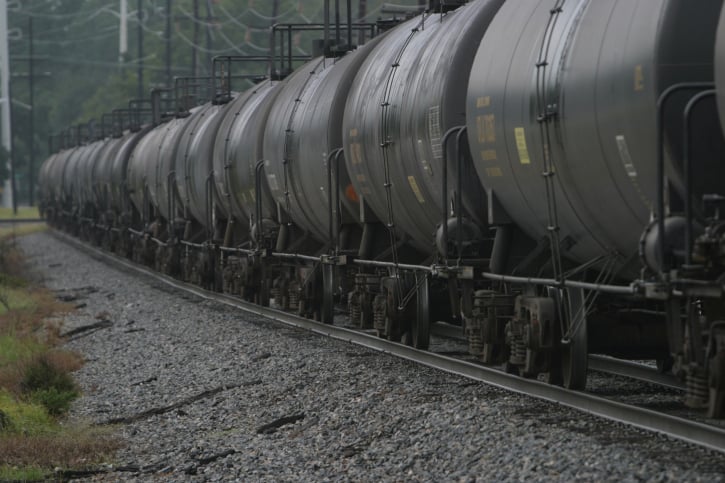Commodities & Metals
Canadian Train Explosion Raises Questions on Rail Transport of Crude Oil
Published:
Last Updated:

Measured by the amount of crude spilled, rail transport is much safer than pipeline transport. In the decade up to 2012, rail spills totaled about 95,000 gallons compared with nearly 20 million gallons of crude spilled from pipelines. But, because pipelines often run through unpopulated areas, spills typically cause most of their damage to the environment and not to people or homes and businesses. The recent 200,000-gallon spill in Mayflower, Arkansas, from an Exxon Mobil Corp. (NYSE: XOM) pipeline is an exception.
Trains, including trains hauling crude oil, travel through more populated areas. That’s one of the big attractions to transporting anything, including oil, by rail. Unlike a pipeline which hauls its cargo from point A to point B, trains can carry freight virtually anywhere.
And while it does cost significantly more to transport crude oil by rail than by pipeline, the relative lack of regulation, and the flexibility of moving crude by rail transport has jumped to the point where it moved about 150 million barrels of crude in 2012 in the U.S., and the total continues to rise. A review of how trains move all that crude may be in order now.
Ever wanted an extra set of eyes on an investment you’re considering? Now you can speak with up to 3 financial experts in your area for FREE. By simply
clicking here you can begin to match with financial professionals who can help guide you through the financial decisions you’re making. And the best part? The first conversation with them is free.
Click here to match with up to 3 financial pros who would be excited to help you make financial decisions.
Thank you for reading! Have some feedback for us?
Contact the 24/7 Wall St. editorial team.